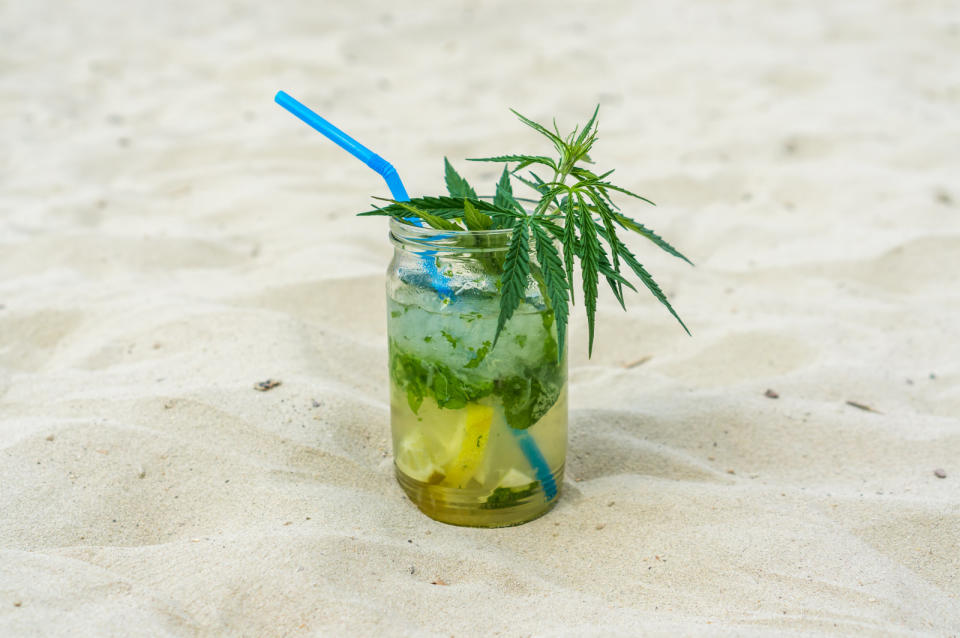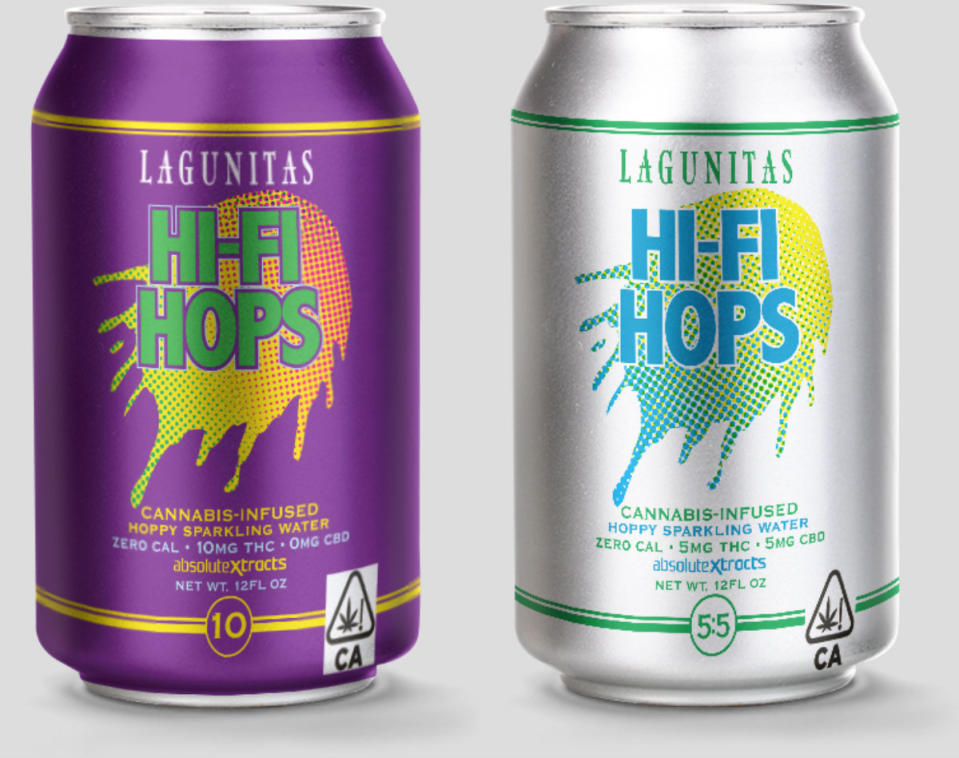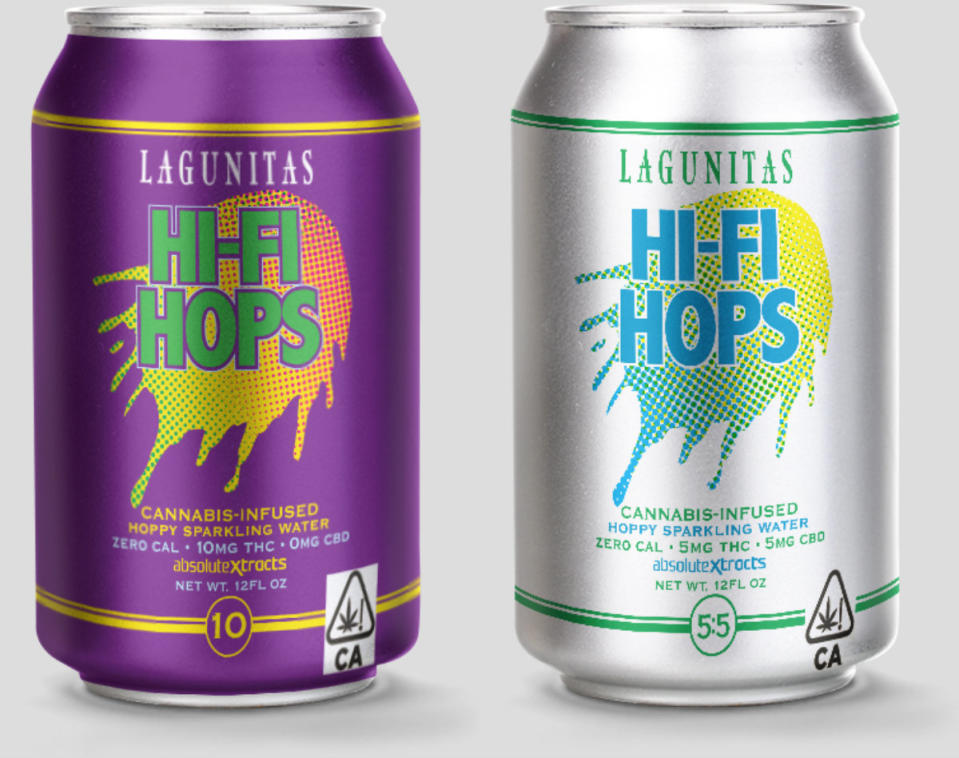Cannabis infusions are the latest evolution in beer's 10,000 year history
Why smoke pot when you can drink it instead?
Archaeologists suspect that humans have been brewing beer for more than 10,000 years, which would indicate that we developed fermentation technology prior to the agricultural revolution. The oldest known beer sample dates from more than 8,000 years ago, made in China using a mix of rice, grapes, hawthorn tree fruit and honey. In the millennia that have followed, brewed beverages have spread and diversified across the globe. That trend continues to this day as brewmasters in the US and Canada experiment with a new strain of 21st century beer infusions: cannabis. It's not been easy, but our good friend science has come to the rescue.
It's not that surprising, really. With the rise of recreational weed in more than half of American states -- and legalization at the national level in Canada coming October 17th -- interest in novel uses for the plant are at an all-time high. What's more, cannabis and hops are genetic cousins. "They're the most closely related plants in the family cannabaceae, genetically speaking," Elan Walsky, co-owner of Oregon's Coalition Brewing told The Ringer in July. "So from a practical standpoint, it means they're producing a lot of the same terpenes, or flavor and aromatic compounds."
This natural synergy has led a number of brewers to experiment with mixing beer with weed. New Belgium recently released the Hemperor IPA, for example, while Lagunitas now offers SuperCritical. Neither of these drinks actually includes THC (which is prohibited by federal law), only the terpenes, but they mark some of the latest innovations in the current trend towards infused craft beers. And they're certainly not alone. Strange Days Brewing in Kansas is famous for its unique infusions including rice, ginger and coffee, while Mad Science Brewing in Maryland offers beers infused with fruits and vegetables. Nevada-based startup Cannabiniers plans to release its own infused brew this month.
Even Molson Coors is getting in on the action. The company recently announced that it is "entering a joint venture with The Hydropothecary Corporation" to develop a line of non-alcoholic weed beers.
Keith Villa, who developed Blue Moon Belgian Wheat, recently left MillerCoors after 32 years to start CERIA Beverages in Colorado. "I'm ready to introduce another high-impact brand to the industry again, this time with a new line of custom cannabis-infused craft beers," Villa writes on the CERIA website. "Today, the opportunity and the demand are here, inviting Americans to enjoy a more social way of consuming cannabis – by drinking rather than by smoking it or through ingestion of edibles."
But unlike the Hemperor IPA or Supercritical, CERIA's offerings will contain THC but not alcohol. The company plans to release three varieties -- a light beer, a wheat beer, and a stout -- this fall.
Whether they contain THC or alcohol, all of these beers share a common characteristic: they're not actually brewed with cannabis. Most often, the beer is simply infused with cannabis oil after the fermentation process. Province Brands, a Toronto-based startup, is working to change that by being the first company to involve cannabis in the brewing process itself, from the plants roots to its flowers. The company is doing so with a little bit of help from student researchers at Loyalist College in Belleville and a $300,000 research grant from the Ontario government.
"Everybody basically laughed at us. They said it couldn't be done," Province Brands CEO Dooma Wendschuh told Global News in May. And at the outset, there were plenty of doubts that they could.
"The things that we would come up with just tasted horrible," Wendschuh told The Guardian. "They tasted like rotten broccoli." The company eventually hired a chemist to help dial in the ideal mixture of hops, cannabis, yeast and enzymes to make a more palatable brew with 6.5 mg of THC per 12 ounce serving. Cannacraft, a California-based cannabis grower and distributor, is taking an even more radical approach to brewing drinkable weed by forgoing the beer part entirely. The company has teamed with Lagunitas Brewing Company out of Petaluma to develop and release Hi-Fi Hops, a sparkling water infused with up to 10mg of THC per serving.

"We've been working with Lagunitas for a little over a year now," Cannacraft co-founder Dennis Hunter told Engadget. The collaboration started after Cannacraft researchers managed to extract some hop terpenes using their CO2 supercritical extractors.
"They were playing around with their beers, doing a really concentrated hops in their beers," Hunter continued. "We played around and put some in some vape cartridges, and it went really well. We gave them some cannabis terpenes to play around with the beer at the time, and that went pretty well." However, creating the drink itself was easier said than done since, as the saying goes "(cannabis) oil and (hop) water don't mix."
"Any time you're trying to get oil into a water it's a little bit difficult, so we had to make the oil with a certain emulsifier to be able to get it to suspend," Hunter explained. "Then we micronized it down to very, very small particles, so it suspends evenly throughout the hop water."
Interestingly, the effects one feels from drinking a Hi-Fi don't generally come from the cannabis oil itself. "[The cannabis oil] is coming from a distillate so there's not a lot of terpenes in the cannabis," Hunter continued. "So, we're letting the terpenes that are actually in the hops water, from the hops, kind of dictate the feel and the sensation you are going to get when you're drinking it."
The company hopes to expand the Hi-Fi lineup with higher dosage drinks, though the regulations for doing so are rather strict. "When you do higher dosage, you have to be able to have it be resealable, child resistant, resealable, and you have to be able to be divvied out in ten milligram increments, and you can't go over a 100 milligrams," he said.
Despite the current regulatory challenges, Hunter remains confident that common sense will prevail. "Someday in the future," he concluded "people will realize that it's no more dangerous than alcohol."





